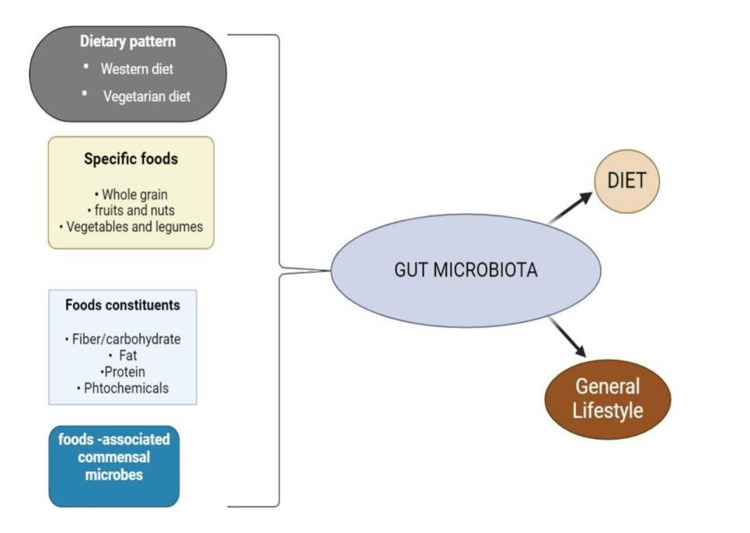Synchronizing gut health and metabolism with the circadian rhythm
Grade 11
Presentation
No video provided
Problem
People today have irregular sleeping and eating schedules due to work, travelling or lifestyle choices. Disruptions in such factors can cause an internal body clock known as the circadian rhythm to malfunction and lead to imbalances in the gut bateria. Gut plays a significan role in digestion and metabolism and disturbances can impact on how the body absorbs and processes nutrients, and regulates hormones. If disruptions are to be continued they can lead to adverse consequences such as health risks like diabetes. I will be talking about the role of the circadian rhythm and how disrupting it can cause adverse affects to the gut microbiota, and how that can lead to metabolic malfunction. The goal of this study is to piece everything together through exploring microbial composition, metabolic hormones and gut bacteria. Hopefully by the end of this study, readers can find themselves at a better position of understanding things that are influential.
Method
In order to understand this the science behind the circadian rhythm along with how it connects to different tasks of the human body, it is crucial to have some prior knowledge on the matter. Below I have listed they way I will be moving forward with this topic, in various questions/themes which will towards the end give light to my hypothesis. This following order will give readers a chance to comprehend basic information beforehand, as well as throughout the entirety of the project.
- Introduction
- What is the Circadian Rhythm? How does it work/what part of the brain controls it?
- The 24-hour cycle on gut bacteria
- Metabolic Hormones
- Circadian rhythm and gut health
- Sleeping behaviours
- Gut diseases that correlate to sleep disruptions
- Types of gut bacteria most sensitive to the circadian rhythm.
- Body's clock on the metabolic function
- Impacts of the rhythm on metabolism controlling hormones
- Disrupted gut bacteria leads to metabolic disorders?
- Role of factors such as jet lag and metabolic imbalances?
- Maintaining a good circadian rhythm help with gut health + metabolism?
- Consistent meal/sleep schedules improve gut microbiota
- Role of probiotics agaisnt circadian rhythm disruptions
Hypothesis: Disruptions in the circadian rhythm in the human body, is the cause of negatively affecting the gut microbiota, which in turn influences the metabolic function, thus impacting the ability to absorb nutrients.
Research
What is the Circadian Rhythm?

How does it work/what parts of the brain controls it?
How do gut bacteria follow a 24-hour cycle?
What role do metabolic hormones (e.g., insulin, melatonin) play in linking circadian rhythm to digestion?
Sleeping Behaviors and Gut Microbiota Diversity:
-
Food and microbiota interaction
-
The food that’s been consumed, gets broken down through substances such as short-chain fatty acids (SCFAs) (e.g. acetate)
-
-
Gut signals enter the brain
-
Vagus Nerve: Known as the “superhighway” for signals, which connects the gut to the brainstem. Gut bacteria can signal the nerve based on factors such as mood or stress.
-
Immune System: Cytokine molecules are produced as the gut bacteria influences the immune cells. If the gut is imbalanced then it can result in inflammation which increases the risk of neurodegenerative diseases such as depression.
-
-
Microbial Metabolites
-
Once the gut bacteria have produced SCFAs they can travel through the bloodstream to reach the brain.
-
The SCFAs can also help produce neurotransmitters that assist to uplift mood, sleep, behaviour such as dopamine and serotonin (5-HT)
-
![Key communication pathways of the microbiota–gut–brain axis. There are numerous mechanisms through which the bacterial commensals in our gut can signal to the brain. These include activation of the vagus nerve, production of immune mediators and microbial metabolites (i.e. short-chain fatty acids [SCFAs]), and enteroendocrine cell signalling. Through these routes of communication, the microbiota–gut–brain axis controls central physiological processes, such as neurotransmission, neurogenesis, neuroinflammation and neuroendocrine signalling. Dysregulation of the gut microbiota subsequently leads to alterations in all of these central processes. There have been numerous reports of alterations in the gut microbiota in neuropsychiatric conditions, which may account for the behavioural abnormalities that are characteristic of these conditions. Normalizing the composition of the gut microbiota with use of probiotics and prebiotics may represent a viable treatment option for neuropsychiatric conditions. 5-HT serotonin, CCK cholecystokinin, GABA γ-aminobutyric acid, GLP glucagon-like peptide, IL interleukin, PYY peptide YY, TNF tumour necrosis factor](https://www.researchgate.net/profile/Eoin-Sherwin/publication/305336727/figure/fig1/AS:391147181625346@1470268163249/Key-communication-pathways-of-the-microbiota-gut-brain-axis-There-are-numerous.png)
An imbalance in this system could result in a living organism getting diseases such as dysbiosis, which is an imbalance in the gut microbiota. Overtime the gut-brain communication can cause further harms to the body such as neuropsychiatric disorders.
Gut diseases that correlate to sleep disruptions:
Types of gut bacteria most sensitive to the circadian rhythm:
Circadian rhythm's impact on metabolic function
Disrupted gut bacteria contribute to metabolic disorders?
Role of Factors Such as Jet Lag and Metabolic Imbalances

Consistent meal/sleep schedules improve gut microbiota:

How probiotics help fight against poor circadian rhythm
Certain dietary measures can help alleviate circadian rhythm disturbances. Kefir and yogurt are fermented foods that contain probiotics, which are beneficial for the equilibrium of intestinal microbes. [9]Dairy products such as yogurt are known to be rich in tryptophan (Trp), which is an amino acid that has great melatonin production capacity. As earlier mentioned, micronutrients can be highly beneficial to support complex functions and promote sleep, and yogurt is significantly high in them.
Data
Conclusion
In this project, I studied the impact of circadian rhythm disruptions on the gut microbiota and how it, subsequently, impacts metabolic function and nutrient absorption. When sleeping and eating are out of sync, there is disturbance in the gut bacteria, which can negatively impact metabolic hormones like insulin, melatonin, and ghrelin. This in turn lead to problems such as indigestion, tiredness, and in the worst possible situation, long term health issues like obesity and diabetes. This study gave insight on factors that could disupt the circadian rhyhm, and in return what those disruptions can do to gut health and the metabolic function.
Citations
Bass J, Takahashi JS. Circadian rhythms: Redox redux. Nature. 2011 Jan 27;469(7331):476-8. [PMC free article] [PubMed] [Reference list]
Arendt J, Aulinas A. Physiology of the Pineal Gland and Melatonin. [Updated 2022 Oct 30]. In: Feingold KR, Anawalt B, Blackman MR, et al., editors. Endotext [Internet]. South Dartmouth (MA): MDText.com, Inc.; 2000-. Available from: https://www.ncbi.nlm.nih.gov/books/NBK550972/
Pineal gland | HealthLink BC. (n.d.). https://www.healthlinkbc.ca/healthwise/pineal-gland
Wikipedia contributors. (2025, March 3). Suprachiasmatic nucleus. Wikipedia. https://en.wikipedia.org/wiki/Suprachiasmatic_nucleus]
Swaim, E. (2025, February 19). How IBS can disrupt your sleep, plus tips to get a better night’s rest. Healthline. https://www.healthline.com/health/ibs/ibs-and-sleep#other-conditions
Duan, L., Wang, B., & Duan, R. (2018). Prevalence of sleep disorder in irritable bowel syndrome: A systematic review with meta-analysis. Saudi Journal of Gastroenterology, 24(3), 141. https://doi.org/10.4103/sjg.sjg_603_17
Boulangé, C. L., Neves, A. L., Chilloux, J., Nicholson, J. K., & Dumas, M. (2016). Impact of the gut microbiota on inflammation, obesity, and metabolic disease. Genome Medicine, 8(1). https://doi.org/10.1186/s13073-016-0303-2
Backhed F, Ley RE, Sonnenburg JL, Peterson DA, Gordon JI. Host-bacterial mutualism in the human intestine. Science. 2005;307:1915–1920. doi: 10.1126/science.1104816. [DOI] [PubMed] [Google Scholar]
Backhed F, Ding H, Wang T, Hooper LV, Koh GY, Nagy A, Semenkovich CF, Gordon JI. The gut microbiota as an environmental factor that regulates fat storage. Proc Natl Acad Sci U S A. 2004;101:15718–15723. doi: 10.1073/pnas.0407076101. [DOI] [PMC free article] [PubMed] [Google Scholar]
Backhed F, Manchester JK, Semenkovich CF, Gordon JI. Mechanisms underlying the resistance to diet-induced obesity in germ-free mice. Proc Natl Acad Sci U S A. 2007;104:979–984. doi: 10.1073/pnas.0605374104. [DOI] [PMC free article] [PubMed] [Google Scholar]
Turnbaugh PJ, Ley RE, Mahowald MA, Magrini V, Mardis ER, Gordon JI. An obesity-associated gut microbiome with increased capacity for energy harvest. Nature. 2006;444:1027–1031. doi: 10.1038/nature05414. [DOI] [PubMed] [Google Scholar]
Turnbaugh PJ, Backhed F, Fulton L, Gordon JI. Diet-induced obesity is linked to marked but reversible alterations in the mouse distal gut microbiome. Cell Host Microbe. 2008;3:213–223. doi: 10.1016/j.chom.2008.02.015. [DOI] [PMC free article] [PubMed] [Google Scholar]
Ley RE, Backhed F, Turnbaugh P, Lozupone CA, Knight RD, Gordon JI. Obesity alters gut microbial ecology. Proc Natl Acad Sci U S A. 2005;102:11070–11075. doi: 10.1073/pnas.0504978102. [DOI] [PMC free article] [PubMed] [Google Scholar]
University of Surrey. (2024, November 19). How jetlag can disrupt our metabolism. ScienceDaily. https://www.sciencedaily.com/releases/2024/11/241119132709.htm
-----------------------------------------------------------------------------------------------------------------------------------------------------
Additional Links:
Acknowledgement
I'd like to acknoledge Ms. Trainor for supporting and helping me throughout this project. Thanks Western Canada High School for giving me the oppurtunity to participate in this. Also would like to thank CYSF and UCalgary for organizing this wonderful fair for students like me.

